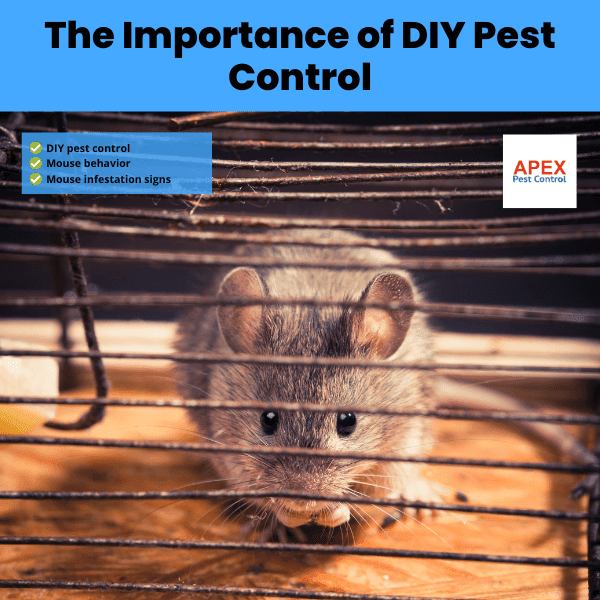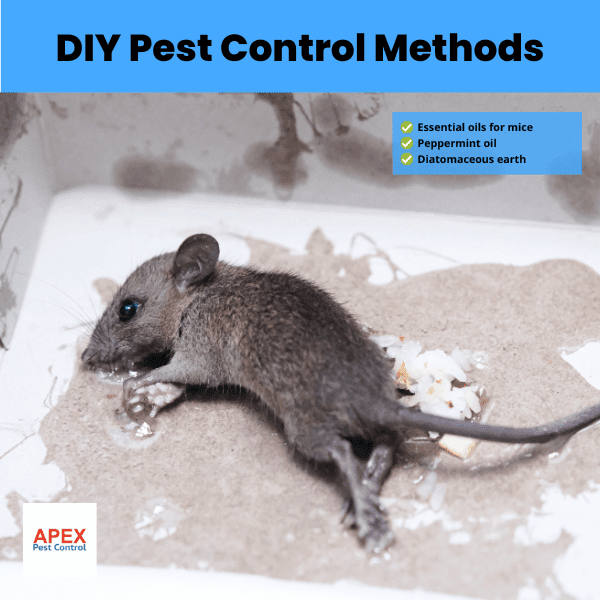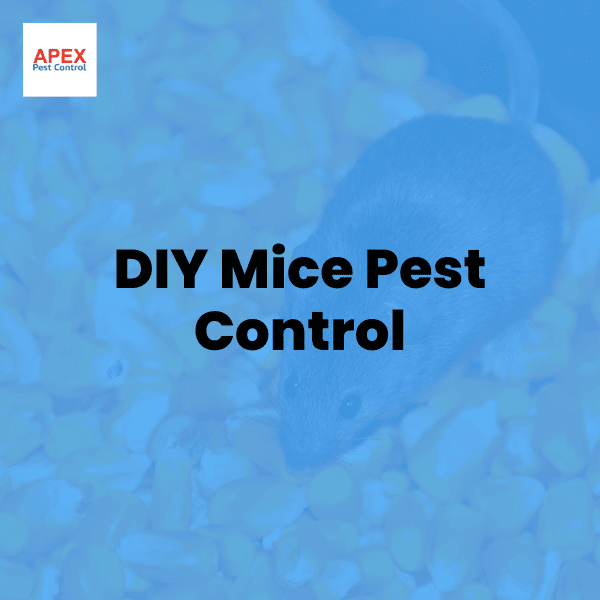Are you tired of unwanted furry visitors scurrying around your home? You’re not alone. Mouse infestations are a common problem, but with the right knowledge and tools, you can take control of the situation. Let’s explore effective DIY methods to keep your home mouse-free.
The Importance of DIY Pest Control

Engaging in Do-It-Yourself (DIY) pest control can be beneficial for several reasons:
- Cost-effectiveness: Hiring professional exterminators can be expensive, especially for recurring infestations. DIY methods can significantly reduce these costs.
- Health benefits: A pest-free home promotes better health. Many pests carry diseases that they can transmit through droppings or bites.
- Environmental impact: Using environmentally friendly solutions instead of commercial pesticides contributes positively to conservation efforts.
Understanding Mouse Behaviour

Mice are clever creatures, always on the lookout for food, water, and shelter. They can squeeze through holes as small as 6mm – about the size of a pencil eraser! Understanding their habits is crucial for effective control:
- Mice are nocturnal, most active at night
- They have poor eyesight but excellent hearing and sense of smell
- Mice can climb vertical surfaces and jump up to 30cm high
- Identifying a Mouse Infestation
Before you can tackle the problem, you need to confirm you have one. Look out for these signs:
Droppings: Small, dark, and rod-shaped
- Gnaw marks on food packaging or wooden structures
- Musty odour in enclosed spaces
- Scratching noises in walls or ceilings, especially at night
Prevention:Your First Line of Defence
As the saying goes, prevention is better than cure. Here’s how to mouse-proof your home:
- Seal entry points: Use steel wool, caulk, or metal sheeting to close gaps around pipes and in walls.
- Keep it clean: Regular cleaning eliminates food sources and nesting materials.
- Proper food storage: Use airtight containers for food and pet food.
- Maintain your garden: Keep grass short and remove debris piles.
DIY Pest Control Methods

Natural Remedies
- Essential oils: Peppermint oil is particularly effective. Mice dislike strong scent. Apply to cotton balls and place in problem areas.
- Vinegar: Its acidity deters many pests, including ants.
- Diatomaceous earth: Acts as a physical barrier, damaging insects’ exoskeletons.
Homemade Traps
- Fruit fly traps: Use cider vinegar covered with punctured plastic wrap.
- Mouse traps: Traditional snap traps baited with peanut butter or chocolate are effective.
Store-bought Solutions
- Ultrasonic devices: While their effectiveness is debated, some homeowners swear by them.
- Electronic traps: Deliver a quick, lethal shock.
“Prevention is key in pest control. Regular cleaning and proper food storage can significantly reduce the likelihood of infestations.” – Pest Control Expert
When to Call the Professionals

While DIY methods can be effective, sometimes you need expert help. Consider calling a professional if:
- You have a severe infestation
- DIY methods aren’t working
- You’re concerned about using traps or repellents safely
Conclusion
With persistence and the right approach, you can win the battle against mice. Remember, consistency is key in pest control. If you’re feeling overwhelmed, don’t hesitate to reach out to professional pest control services.
Frequently Asked Questions
Are all essential oils effective against pests?
Not every essential oil works on pests. Some common effective ones include peppermint, tea tree and citronella oils.
Can I use food as bait in mouse traps?
Yes. Mice are attracted to foods with strong scents such as cheese or peanut butter which work well as bait.
Are store-bought pesticides safe for household use?
While many commercial pesticides are approved for home use, it’s important to read the label instructions carefully and adhere strictly to safety precautions.
What regular cleaning practices can prevent pests?
Regular vacuuming, disposing of trash promptly and keeping surfaces clean can deter pests.
How do I identify potential entry points for pests?
Crevices in walls or doors, window gaps, broken roof tiles or open chimney tops serve as typical entry points that should be sealed off.
How long does it take to get rid of mice using DIY methods?
With consistent application, you may see results in 1-3 weeks. However, complete eradication can take several months for larger infestations.
Is it better to use poison or traps for mouse control?
Traps are generally preferred over poison for DIY mouse control. They allow for easier disposal and pose less risk to pets and children.
| Method | Pros | Cons |
|---|---|---|
| Snap Traps | Quick, effective, reusable | Requires careful placement, can be messy |
| Live Traps | Humane, no mess | Requires relocation of mice |
| Ultrasonic Devices | No chemicals, easy to use | Effectiveness debated, may affect pets |
| Essential Oils | Natural, safe for pets and children | May need frequent reapplication |
Remember, for persistent or severe mouse problems, it’s always best to consult with professionals. They’re equipped with the expertise and tools to handle even the most challenging infestations.

Tony Johnson, our pest control company founder, is your partner in pest management. With his extensive knowledge of Integrated Pest Mangement and commitment to staying updated on the latest Pest industry trends, Tony is a trusted source for effective pest control solutions. Your peace of mind is Tony’s top priority.
Trusted BPCA & NPTA member.


